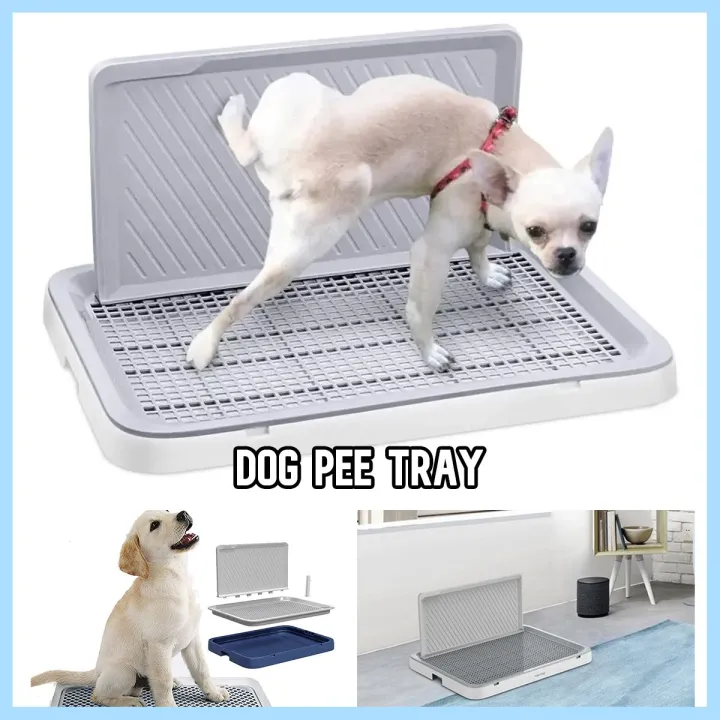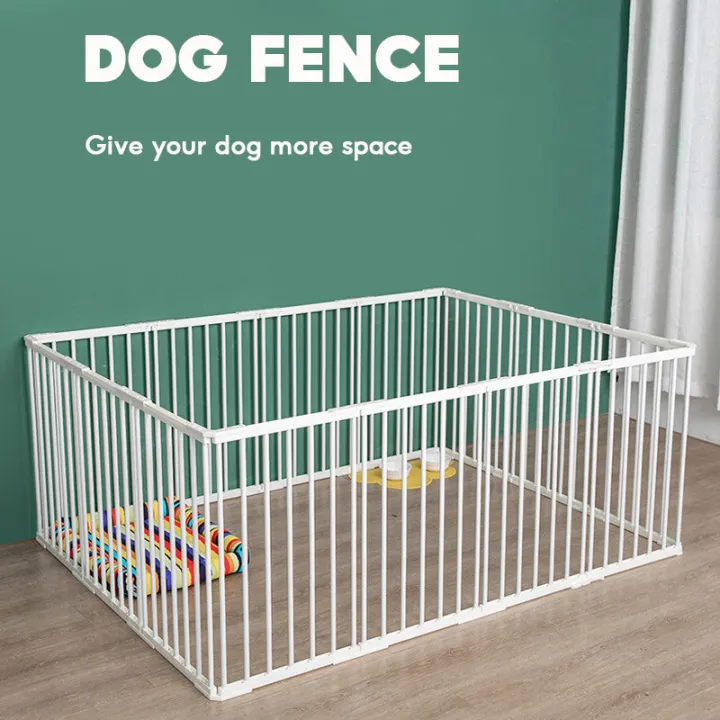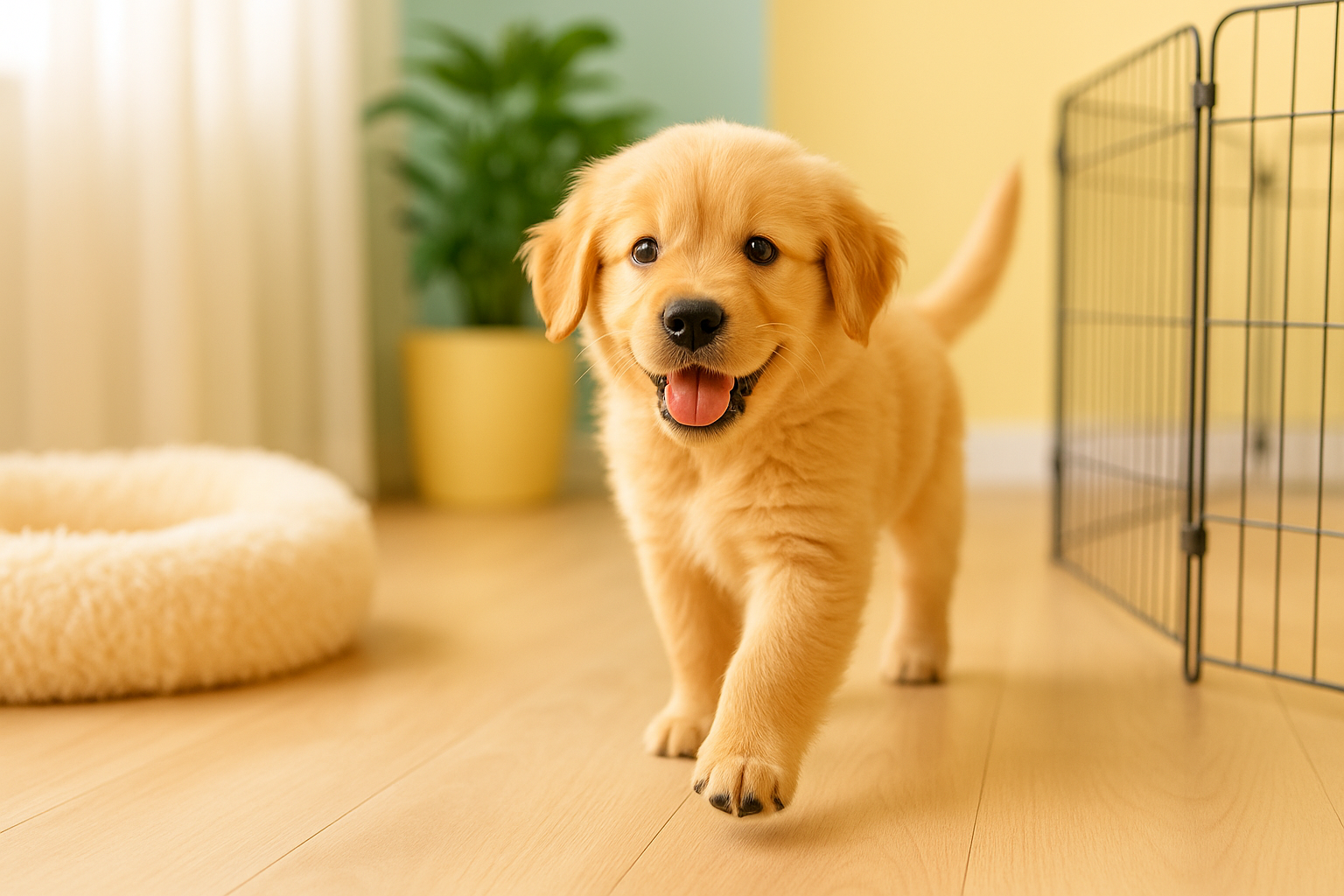1. Create a Safe, Low-Stress Space

Limit your puppy’s roaming to one or two puppy-proofed rooms so they aren’t overwhelmed by new sights and smells.
Tip: Place the bed in a quiet corner to mimic a den-like environment.
2. Establish Potty & Feeding Routines

For high-rise living, set up the pee tray near your door. Use a cue like “go potty” and maintain a feeding schedule of three to four meals daily.
Tip: Clean the tray after each use to encourage consistent habits.
3. Begin Crate Training & Sleep Routine

Use the playpen as a secure den. Leave the door open for initial exploration, then close it for short, calm sessions to build tolerance.
Tip: Add a blanket and a toy inside to create a comforting space.
4. Schedule Your First Vet Visit
Book a health check within 72 hours. Discuss vaccinations, deworming, and microchipping to start on the right foot.
Tip: Record weight, appetite, and elimination to share with your veterinarian.
5. Start Gentle Bonding & Early Socialization
Introduce family members gradually and supervise calm interactions. Play soft background sounds to help your puppy acclimate.
Tip: Offer a treat for calm behavior around new faces.
Quick Checklist for Days 1–3
- Designate a puppy-proofed “home base”
- Set up crate with bedding and comfort item
- Establish and reward potty spot and schedule
- Feed measured meals 3–4× daily at consistent times
- Begin 1–2 min crate sessions for training
- Schedule first vet appointment within 72 hrs
- Journal weight, meals, and eliminations
- Introduce family and calm background sounds
By following these steps in the first few days, you’ll lay the groundwork for confident house training, strong vet-partnership, and a trusting bond that sets your puppy on the path to a happy, well-adjusted life.
👉 Don’t forget to download your Free Puppy Starter Checklist before you go!

Leave a Reply